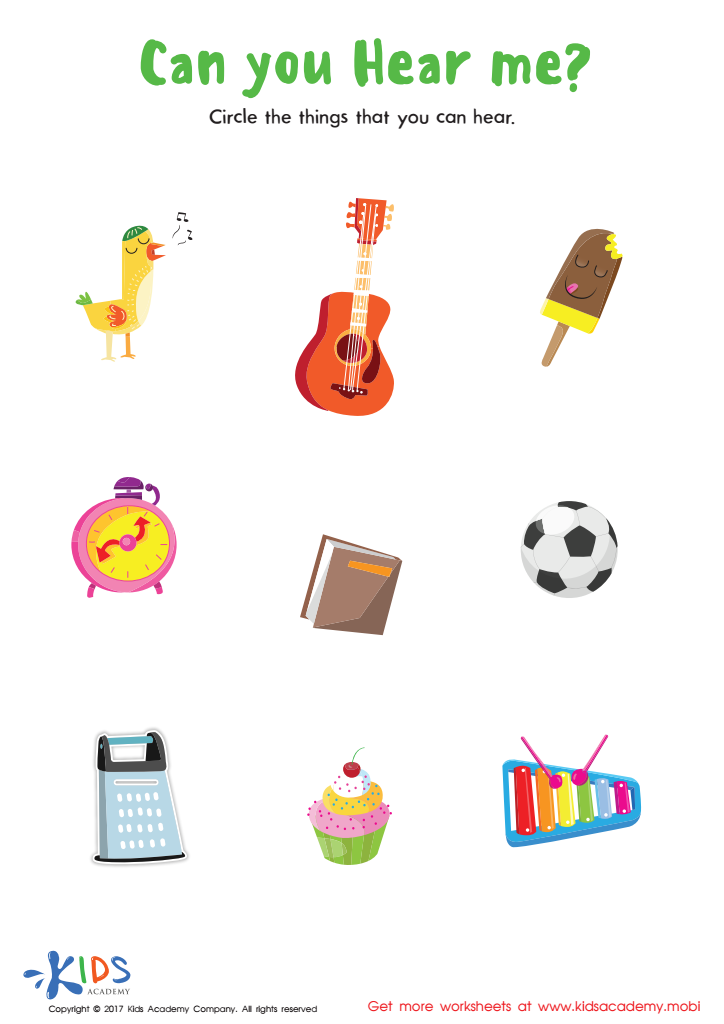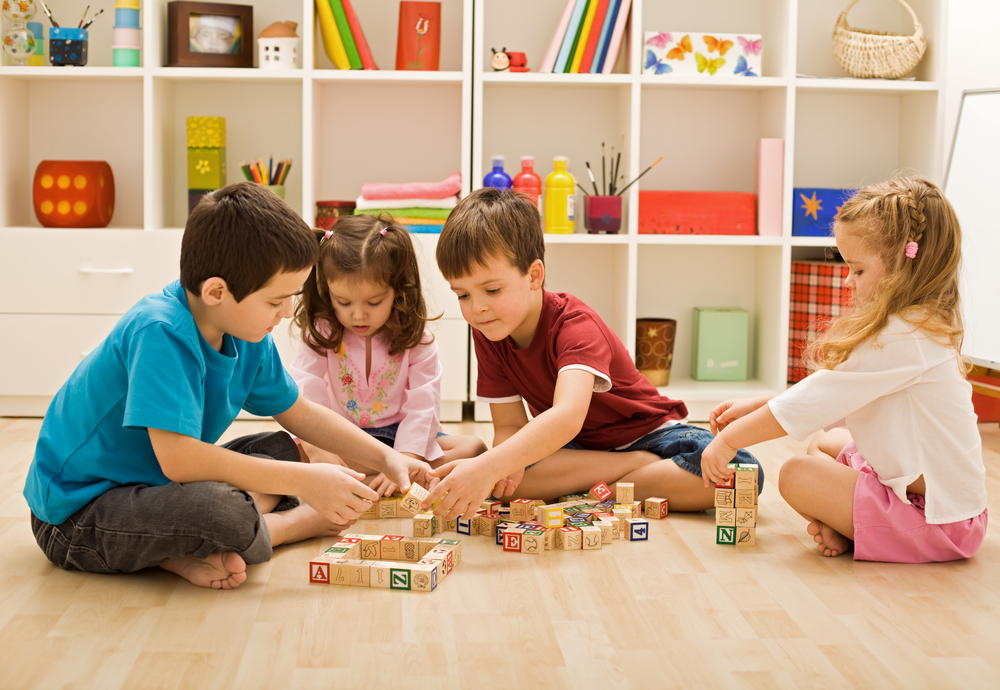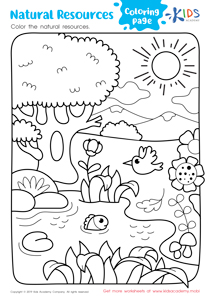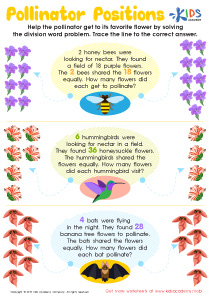Sound recognition Normal Preschool Worksheets
4 filtered results
-
From - To
Discover our engaging Sound Recognition Normal Preschool Worksheets, designed to enhance early literacy skills in young learners. These printable worksheets provide a fun and interactive way for preschoolers to develop their understanding of sounds through various activities. Children will practice identifying and matching sounds, improving their auditory discrimination, and fostering phonemic awareness. Our worksheets are tailored to be age-appropriate, ensuring that learning is both effective and enjoyable. Perfect for home and classroom use, these resources empower teachers and parents to support children's language development while making learning a delightful experience. Start your child’s journey in sound recognition today!


Rhyming Words Rhyming Worksheet


Can You Hear Me Worksheet


Long and Short U Worksheet


First Words: Picture Rhymes Worksheet
Sound recognition is a critical component of early childhood education, particularly in preschool settings. It is essential for literacy development, as it lays the foundation for phonemic awareness—the ability to hear, identify, and manipulate individual sounds in words. This skill is crucial for children as they learn to read and write.
Parents and teachers should prioritize sound recognition because it directly impacts a child’s academic success. Studies have shown that children who struggle with sound recognition often have difficulties with reading and language skills later on. By fostering an environment that emphasizes auditory skills, adults can help children improve their ability to decode words and make connections between sounds and letters.
Moreover, sound recognition enhances overall language development, enabling children to express themselves more effectively and build a rich vocabulary. Engaging in activities such as rhymes, songs, and sound games can make learning enjoyable and interactive.
Additionally, sound recognition practices foster listening skills, which are fundamental for following directions and engaging in collaborative learning experiences. Ultimately, investing time and resources into sound recognition not only boosts literacy skills but also supports cognitive growth, social interaction, and emotional development, setting children on a path to academic achievement and lifelong learning.

 Assign to My Students
Assign to My Students




















